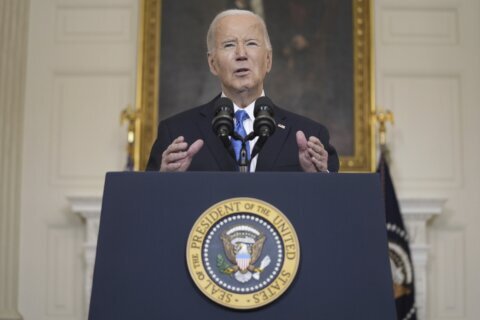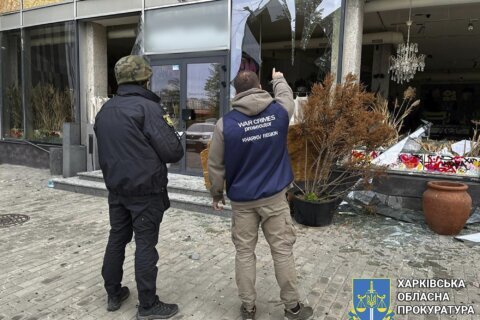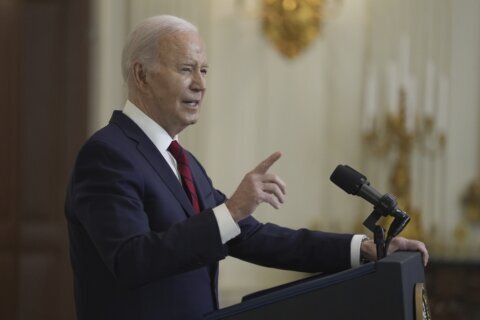PRISTINA, Kosovo (AP) — The United States envoy for the Serbia-Kosovo dialogue on Monday welcomed the European Union-facilitated deal on normalizing relations between neighboring Kosovo and Serbia as an “important and historic agreement.”
Gabriel Escobar said the weekend deal between Serbian President Aleksandar Vucic and Kosovar Prime Minister Albin Kurti in Ohrid, North Macedonia “sets the conditions for normalization between Serbia and Kosovo on European terms.
On Saturday EU foreign policy chief Josep Borrell said Vucic and Kurti agreed on an 11-point EU plan to normalize relations following their 1998-1999 war and Kosovo’s declaration of independence from Serbia in 2008.
The plan calls for them to maintain good neighborly relations and recognize each other’s official documents and national symbols. If implemented, it would prevent Belgrade from blocking Kosovo’s attempts to seek membership in the United Nations and other international organizations. But it doesn’t explicitly call for mutual recognition between Kosovo and Serbia.
“This agreement is a legally binding obligation on both parties … (and) will continue to be the basis of our policy for the United States going forward and the basis for European engagement in the region,” Escobar said in an online briefing.
Both countries hope to join the EU one day, and have been told they must first mend their relations. Solving the dispute has gained attention as war rages in Ukraine and fears mount that Russia could try to stir instability in the volatile Balkans, where it holds historic influence.
Escobar said the “primary intent was to frame the ground rules of interaction between the two countries so that things like license plates and barricades don’t threaten to spin out of control and create regional instability.”
Kosovo is a majority ethnic Albanian former Serbian province. The 1998-1999 war erupted when separatist ethnic Albanians rebelled against Serbia’s rule, and Belgrade responded with a brutal crackdown. About 13,000 people died, mostly ethnic Albanians. In 1999 a NATO military intervention forced Serbia to pull out of the territory.
Tensions have simmered ever since. Kosovo’s independence is recognized by many Western countries. But it is opposed by Belgrade with the backing of Russia and China.
Copyright © 2024 The Associated Press. All rights reserved. This material may not be published, broadcast, written or redistributed.







